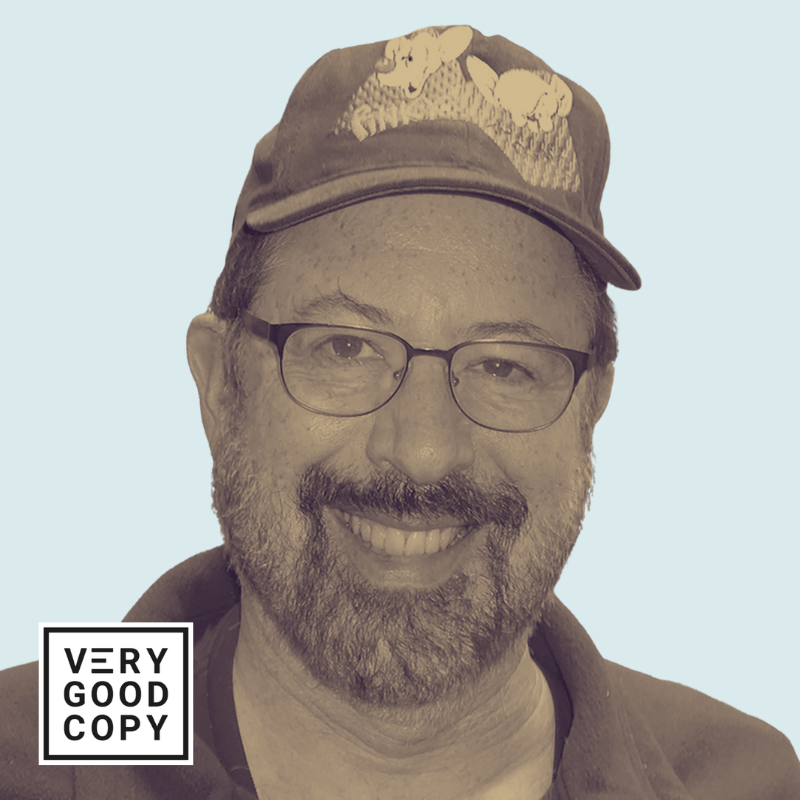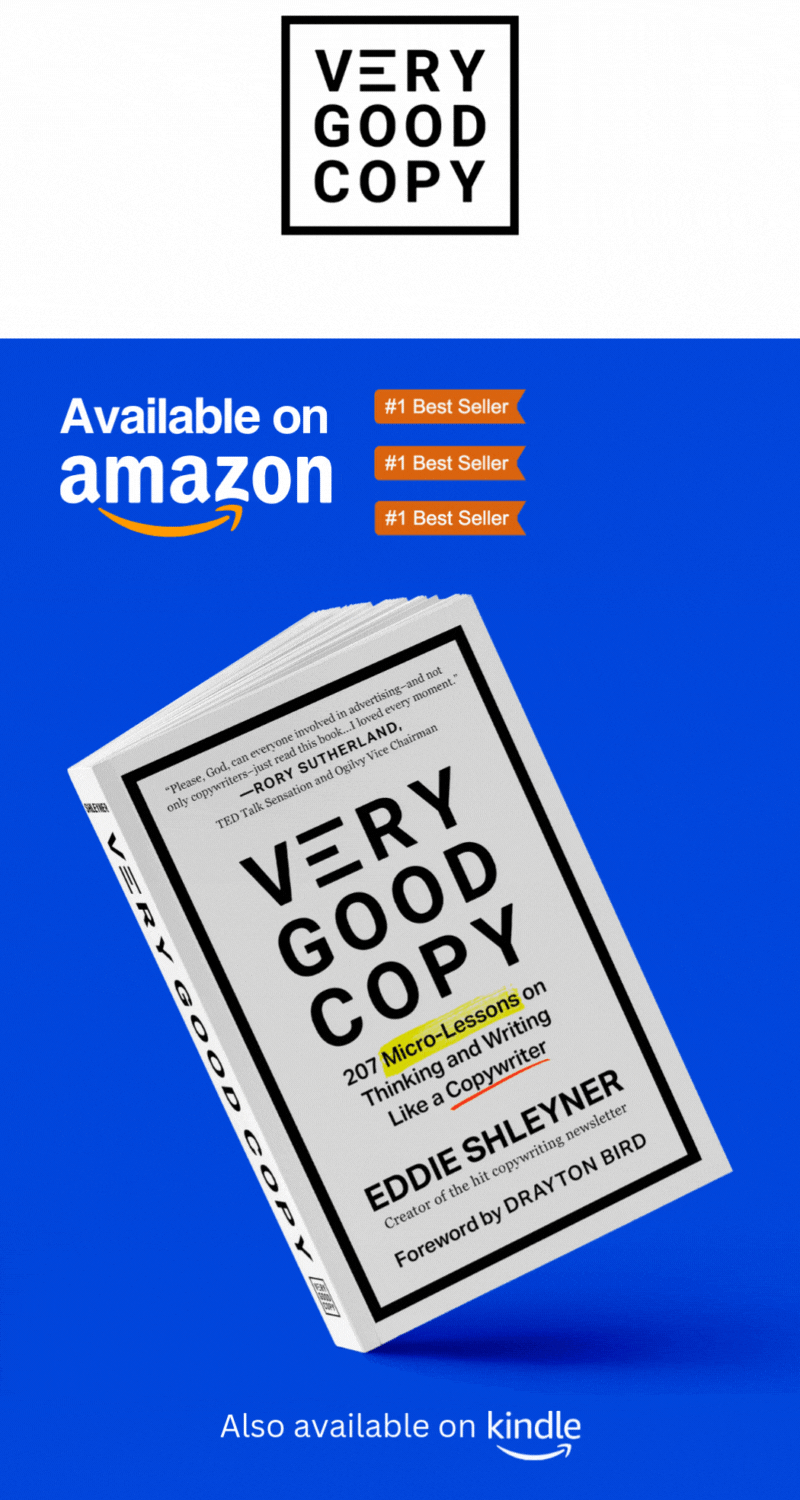EDITOR’S NOTE:
David Garfinkel has been a direct-response copywriter for more than 35 years.
And now he’s generously sharing everything he knows on one of my favorite shows about the craft: Copywriters Podcast. I’ve listened to every episode at least once — except my own (because I hate my voice).
David also gave us several books, including Advertising Headlines that Make You Rich and the bestselling, Breakthrough Copywriting. Both invaluable.
“Any interest in doing a Micro-Interview, David?” I asked.
“Sure,” he said.
And here we are.
In just 546 words, David shares:
His unique take on perfectionism…
The best way to catapult your growth in any field, including copywriting…
The book that taught him most about commitment, imagination, purpose, and making money…
And much more…
Please enjoy this (beautifully written) interview with a true master of persuasion.
Instantly get 6 “micro” courses and series about copywriting when you subscribe to the VeryGoodCopy newsletter for free. Plus...enjoy new content every week. Learn more →
Thank you, David.
Let’s get started:
1) “What’s your work routine?”
This is new for late last year and all of 2021: The first 25 minutes of my day are devoted to what psychologists Keith Stanovich and Richard West call "System 1" — the sympathetic and parasympathetic nervous systems, or, simpler, the unconscious:
10 minutes of meditation
5 minutes on a binaural track by Dr. Jeffrey Thompson to attune my brain to theta waves
5 minutes of my own binaural beat music to ready my immune system for the day
5 minutes loosening up physically on a vibration plate exercise platform
From there, it's anything but routine. I have mentoring clients in the morning, usually at 9 or 10 am. Some mornings no clients, but I record Copywriters Podcast with, I must candidly admit, the world's greatest podcast producer, Nathan Fraser. Some days I'm working on new products. Sometimes I'm doing copy critiques for copywriters and/or business owners. Sometimes I'm reading, or wasting time... oh, excuse me, *savouring the zeitgeist*... on Twitter and Facebook.
I've started reading a lot more since the pandemic started. I read a challenging book every two weeks for a book discussion group I'm in with three other really smart guys. Well, three smart guys, anyway. Some really interesting books include: Violence and the Sacred, by René Girard; When Coffee and Kale Compete, by Alan Klement; and Cynical Theories, by Pluckrose and Lindsay.
Old, out-of-print copywriting books: I seek them out and read them. Then springboard from there into complete original podcast episodes. We call it the Old Masters Series. About one of every three or four shows.
2) “What do you know about your work now that you wish you’d known when you first started?”
Details matter.
Perfectionism is stupidly non-strategic, because sometimes good enough is good enough; but sometimes it's not. And perfection actually *is* possible.
Just not all the time. Because there's never enough time for that.
I think the biggest thing I've learned along the way is to be able to tell the difference between what really matters more than anything else, and how to go all-in on those things.
3) “What did your biggest professional failure teach you?”
I'm not sure I have an answer to that. The better I get, the longer I live, the more often I fail and the less it matters. Learning how to recover is important; so is being willing to fail. I've made plenty of mistakes along the way. I don't think I can, or care to, single out one thing that would get the prize for being my biggest professional failure, though.
4) “What’s the #1 thing that has helped you shorten your craft’s learning curve?”
Being mentored, and mentoring others. There's only so much you can learn from books or observation. Something happens in a relationship where the commitment on both sides is to growth and learning.
5) “What book has helped you the most over your career?”
Think and Grow Rich, by Napoleon Hill. Surprisingly, not so much the part about money as the parts about commitment, imagination, purpose.
The part about money's not that bad, though.
6) “And your parting piece of advice?”
Beware of that smug feeling that you've finally arrived. If life is a journey, then the destination would have to be...
You get the idea.





